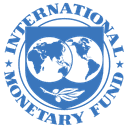Explore the intersection of climate change and economics with IMF experts, covering scientific foundations, economic impacts, and policy solutions.
Explore the intersection of climate change and economics with IMF experts, covering scientific foundations, economic impacts, and policy solutions.
This foundational course from the IMF's Institute for Capacity Development examines the complex relationship between climate change and macroeconomics. Students learn about the scientific basis of climate change, its economic implications, and global policy frameworks. The course analyzes emission sources, physical impacts, and economic consequences while exploring how international institutions address climate challenges. Through comprehensive study of both environmental and economic aspects, participants gain insights into developing effective climate action strategies.
4.4
(43 ratings)
14,424 already enrolled
Instructors:
English
English
What you'll learn
Understand the scientific foundations of climate change and its emission sources
Analyze the economic impacts of climate change on global welfare and development
Examine international frameworks and agreements for addressing climate issues
Evaluate the IMF's approach to climate change policy and member country engagement
Identify key challenges and opportunities in global climate action
Skills you'll gain
This course includes:
PreRecorded video
Graded assignments, exams
Access on Mobile, Tablet, Desktop
Limited Access access
Shareable certificate
Closed caption
Get a Completion Certificate
Share your certificate with prospective employers and your professional network on LinkedIn.
Created by
Provided by

Top companies offer this course to their employees
Top companies provide this course to enhance their employees' skills, ensuring they excel in handling complex projects and drive organizational success.





Module Description
This course presents a comprehensive overview of climate change from both scientific and economic perspectives. It explores the fundamental causes of climate change, including emission sources and their impacts on the environment and economy. The curriculum examines global frameworks for climate action and the IMF's role in addressing climate-related challenges. Participants learn about the economic consequences of climate change and strategies for implementing effective climate policies.
Fee Structure
Instructors

1 Course
Distinguished IMF Economist and Climate Economics Expert
Augustus J. Panton serves as an Economist in the Multilateral Surveillance Division of the IMF's Research Department, bringing extensive expertise in monetary economics, international macroeconomics, and macro-financial climate risks. His distinguished career includes notable achievements in academia and public service, having earned multiple teaching excellence awards including the ANU Vice-Chancellor's Award for Excellence in Education while serving as an Associate Lecturer at the Australian National University. His academic credentials include a Ph.D. in Economics from the Australian National University, where his thesis focused on climatic disruptions and monetary policy, a Master's in International Economics and Finance from the University of Queensland, and a Master's in Finance from Osmania University. Prior to his IMF role, he held significant positions in Liberia as an economist at the Central Bank and senior economist at the Ministry of Commerce and Industry, while also serving as a consultant for the Brookings Institution and as an Adam Smith Fellow at the Mercatus Center at George Mason University. His teaching experience encompasses graduate and undergraduate courses in macroeconomics, microeconomics, and financial economics at the Australian National University, where he demonstrated exceptional teaching ability recognized through multiple awards

1 Course
IMF Senior Economist and Climate Policy Strategist
Irene Yackovlev serves as a Senior Economist at the International Monetary Fund, where she leads the Communications Department matrix team overseeing strategy and policy communications. Her significant contributions include co-authoring the IMF's climate strategy and leading the technical team responsible for implementing the Strategy for IMF Engagement on Social Spending. With extensive experience in economic reform programs, she has provided crucial advisory support to countries like Ecuador during the pandemic and Portugal during the global financial crisis. Her work in the Strategy, Policy and Review Department has been instrumental in advancing the IMF's initiatives on climate change, social spending, and gender equality. A Venezuelan national, Yackovlev coordinates the IMF's involvement with the G20 Compact with Africa and contributes to policy development for small developing states. Her academic credentials include a B.A. and M.A. from Stanford University, with additional doctoral studies at MIT. Her expertise spans multiple areas of international economic policy, making her a key figure in shaping the IMF's approach to emerging global challenges
Testimonials
Testimonials and success stories are a testament to the quality of this program and its impact on your career and learning journey. Be the first to help others make an informed decision by sharing your review of the course.
Frequently asked questions
Below are some of the most commonly asked questions about this course. We aim to provide clear and concise answers to help you better understand the course content, structure, and any other relevant information. If you have any additional questions or if your question is not listed here, please don't hesitate to reach out to our support team for further assistance.



